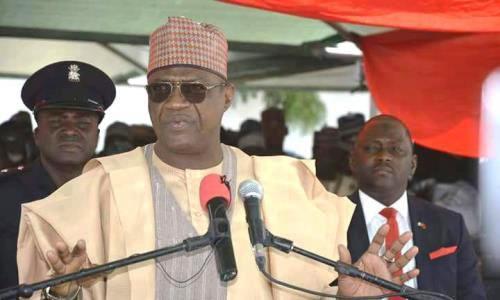Senator Ibrahim Gaidam representing Yobe East Senatorial District has reiterated his stance on the controversial bill to establish a National Agency for the rehabilitation, deradicalisation and reintegration of repentant Boko Haram insurgents.
He said that it was a strategic approach to solving insurgency problems.
In a statement in Abuja on Monday, the former Governor explained that the proposed agency was a model that would absorb the repentant insurgents, adding that many of them were willing to surrender if opportunity was created for them to be absorbed.
Read Also: IPOB Needs Amnesty Not Boko Haram Members – Ohanaeze
He said it was a global best practice that has worked all over the world, insisting that deradicalisation, reintegration and accommodating repentant militants was the way to go.
“In view of the fact that the Boko Haram insurgency is becoming increasingly aggressive since its inception in 2009, marked by extreme brutality and explicit targeting of civilians, resulting in continued infliction of massive casualty on innocent citizens, particularly in northeastern Nigeria, it has become necessary for us to go back to the drawing board and adopt an alternative approach, in addition to the military option which has so far performed significantly well.
“There is no doubt that many members of the insurgents’ group have defected and many more are willing to repent given a window of opportunity and this is confirmed by many organizations including NGO’s that have unalloyed access to the Boko Haram.
“There is the need for a more strategic and comprehensive approach to entice those members of the group who, after realizing the futility of the course they are pursuing have eventually decided to voluntarily lay down their arms and chose the path of peace.
“Hence, the need for the establishment of the National Agency for the Rehabilitation, Deradicalization and reintegration of repentant insurgents to accommodate the defectors.
“The Agency when established, shall be charged with the responsibility of the planning, designing and organizing specialized programs aimed at deradicalizing, rehabilitating and reintegrating defectors and repentant insurgents.
“These specialized programs which will serve as mechanisms for disengagement from terrorist’s ideology and invalidate the recourse to violence will focus on ideological, religious, educational, vocational, social, creative arts therapy, sports and recreation and psychological issues that cause violent extremism.
“It should be noted that the deradicalization and rehabilitation process for former members of Boko Haram will vary on a case-to-case basis.
“Those who have become weary of the perpetual violence and have voluntarily laid down their arms and defected from the group will be accepted and rehabilitated using various tools of deradicalization, rehabilitation and reintegration.
“In contrast, those captured active in the battlefields will be required to, in addition to the psychological therapy, participate in the criminal justice process.
“The concept of deradicalization, rehabilitation and reintegration are global practice. Lots of countries, including Britain, Saudi Arabia, Yemen, Egypt, Somalia, Pakistan, Syria, and Iraq have formulated various models of deradicalization and rehabilitation programs to combat the menace of radicalization with significant measure of success”, he insisted.
AFRICA TODAY NEWS, NEW YORK

